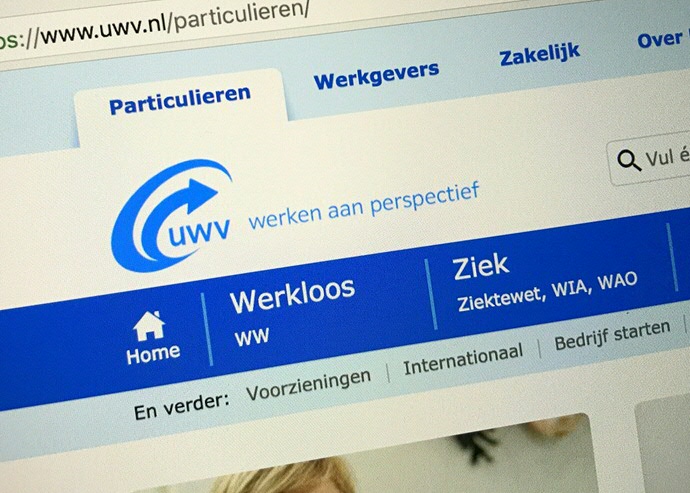‘Implement laws intelligently’

Avoid routinely treating those receiving social security benefits as potential fraudsters. Instead, explore the situation on a case-by-case basis to see which approach is most likely to bring about compliance with legal obligations. A group of five researchers at the University of Groningen refer to this approach as ‘smart enforcement’.
‘The legislators have no interest whatsoever in ordinary members of the public’. In early 2017, this acerbic statement by Marc Hertogh, Professor of Socio-Legal Studies at the University of Groningen, featured on the cover of Sprank, a ‘news magazine about participation, work and income’. In the accompanying interview, Prof. Hertogh described the fact that, in recent social legislation, the Dutch government has chosen to portray people in two very different ways as ‘remarkable’. The Social Support Act (WMO), for example – the law that regulates social support – views members of the public as ‘self-reliant’ and social. The Participation Act and the Fraud Act, on the other hand, are based on views of the public as people who behave in a ‘calculating’ manner, and who, therefore, have to be kept on a very tight leash, Marc Hertogh explained. Last summer, he featured in the media once again. This involved a study he was leading into the treatment of benefit recipients by social services and the Employee Insurance Agency (UWV). In the course of a discussion of this topic at Groningen’s Faculty of Law, he briefly revisits the issue of the conflicting ways in which the government chooses to portray members of the public. According to Prof. Hertogh, this is simply a matter of opportunism. ‘The government intended to use one piece of legislation to save as much money as possible in terms of social care expenditure. This, in turn, spawned the notion of people who are perfectly able to take care of themselves. The authorities hoped that the two other laws could be used to reclaim as much as possible of any money that had been wrongfully paid out. That required stricter monitoring. As a result, members of the public were depicted as unreliable.’
Appropriate contact
Nonetheless, Marc Hertogh recognizes that, in recent years, this same government has been focusing on improving the relationship between the state and its subjects. This was prompted by the belief that it is essential for people’s trust in the rule of law to remain intact. One well-known example is the Ministry of the Interior and Kingdom Relations’ ‘Appropriate contact with the government’ project. In this context, civil servants are encouraged to adopt an ‘open, honest and interested attitude’ in their interactions with the public. They are also being urged to develop ‘communication skills such as active listening, summarizing and in-depth questioning’. The Ministry insists that ‘The focus will shift from a procedure-oriented approach to a proactive and solution-oriented one’. Prof. Hertogh explains that ‘This programme is based on the notion of a responsive government – a concept developed by Michiel Scheltema, an emeritus professor at the University of Groningen. That concept has recently attracted a great deal of attention. At the same time, social security legislation has become more and more repressive since the 1990s. The conditions involved, the monitoring of compliance and the sanctions imposed all became stricter. Our study into the contact between benefit recipients and institutions encountered both types of government attitude (or a combination thereof) among employees of the UWV and the social services.’

Policeman
In their study, Marc Hertogh and four fellow University of Groningen researchers, examined the diverse ‘enforcement styles’ employed by civil servants. This involved extensive case studies at a number of benefits agencies and a national survey among more than 1,000 benefit recipients. The results showed that over 50 percent of people on unemployment benefits (WW) or social assistance perceived the employees of the UWV or the social services as ‘policemen’. In contrast, the term ‘coach’ featured in the job titles of one quarter of those employees. A great many quotes cited in the study report accurately reflect professional differences in the way job seekers are treated. Take ‘Samara’, for instance, who said ‘The rules? Surely that’s what my work is all about?’ Martijn took a considerably more moderate view ‘There is more to the UWV than blind adherence to the rules.’ ‘Compared to other institutions, such as the government or the House of Representatives, the UWV and the social services enjoy quite a high level of trust’, says Prof. Hertogh. ‘However, 92 percent of the people in question do not abuse the system. Thus, it is quite legitimate to wonder whether – as a government service – things are still on the right track, if more than half of your clients feel they are being treated as potential fraudsters. For this reason, our study also explored the effect of this approach. This showed that otherwise compliant clients tend not to adhere to their obligations if they feel they are being dealt with unfairly. In other words, adopting a standard, hard-line approach actually leads to greater expenditure on unemployment benefits.’
The public’s perspective
That conclusion is not, of itself, particularly surprising. In comparable situations, previous studies by other workers have revealed a link between treatment perceived as ‘fair’, on the one hand, and ‘good conduct’ on the other. What is new is the evidence that this also applies to the world of social security. In that sector, the effectiveness of policy had never before been studied from the public’s perspective. The most important recommendation made by Marc Hertogh and his team is that appraisals about which method will deliver the best result must be made on a client by client basis. These researchers have developed a tool for this purpose. More accurate tests of its usability are scheduled for the upcoming period. ‘We can now use questionnaires to measure a person’s basic attitude, be it positive or negative. That generates a “green” (or greener) or “red” (or redder) profile. It will save time and, therefore, money if employees can rely on categorization systems like this,’ says Prof. Hertogh, who nevertheless feels that ‘pigeon-holing’ people in this way is not without its drawbacks.
Ode
The results of this four-year study, which was funded by the Gak Institute, have now been published as a book entitled Smart enforcement. According to Marc Hertogh, the results of this study have – for the most part – been well received by those in official and political circles. ‘Yet people sometimes ask whether our call for customization might actually favour a degree of arbitrariness. At a recent conference on our study, the National Ombudsman described this as rather feeble thinking. After all, what about judges?’ he said. ‘Their work is all about applying general rules, while taking any relevant circumstances into account.’ Another critical question might be why Prof. Hertogh et al. fail to take a stand against the punitive nature of the law. The researchers seem to have focused solely on the ‘gains’ associated with specific enforcement techniques. ‘There’s some truth in that’, admits Marc Hertogh. ‘But I actually see our study as an ode to all those professionals who have been applying the rules ‘with respect for the individual’ for many years now. In addition to being as effective as possible, they have endeavoured to be as human as possible. One such employee enabled an unemployed father of four to buy new car tyres, so he could take his children to the crèche and then to drive to his temporary job.’
Text: Annemarie Kok. This article has been taken from our alumni magazine Broerstraat 5.
More news
-
08 December 2025
Colourful Characters: Bert Röling
